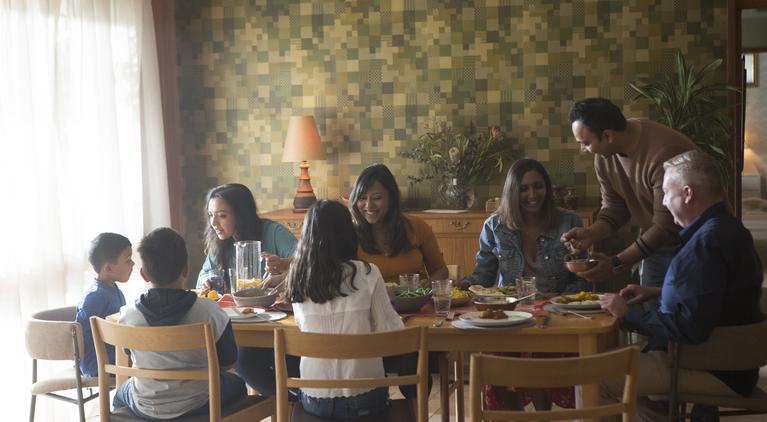From time to time, we can experience power outages. Whether your home has been affected by a severe storm or the grid is experiencing technical issues, there can be a number of causes behind a blackout.
With that said, if your home has solar panels, you may still be able to power your home during a power outage. Here’s how;
Understanding solar panels
In short, solar panels are made from photovoltaic (PV) cells that are designed to capture the sun’s energy and convert it into direct current (DC) power. The DC power is then passed through an inverter, converting it into alternating current (AC) power, which is then used to power the appliances and devices in your home.
Assessing power outage needs
Before you experience a power outage, it can be useful to assess your needs to make sure you’re adequately prepared. Start by identifying the devices and appliances that are essential for maintaining your home. This can include lighting, refrigeration, medical equipment, internet access, communication devices and heating or cooling systems.
From here, you can estimate how much electricity is needed to power these devices and how long you may need to power these devices if you experience a power outage. Based on your power requirements and estimated outage duration you can choose a solar system with battery storage that you can rely on in the event of a power outage. Just be sure to install a system that’s fitted with blackout protection so you can still use it if the power is out.
Ensuring safety during power outage
Many homes use a grid-tied solar system. This means that any excess electricity that your solar system produces is fed back into the electricity grid. During times when your solar system doesn’t produce enough electricity to power your home, like at night or when it’s cloudy, your home will draw on the grid to top up its energy needs.
Depending on your energy provider, they might offer you a feed-in tariff that’s credited against the cost of any energy you use from the grid, helping you to save on your electricity bill.
With a grid-tied solar system, when the power network goes down, your solar system shuts off with it. This is a safety mechanism that’s in place to protect the utility workers who have to get out there and work on the lines to get the grid back up and running. So, even if you have solar panels that are producing electricity, you could find yourself without power in the event of a blackout.
Installing a home battery system
Having solar panels alone may not be enough to power your home, especially during a power outage. This is where rechargeable batteries come in handy. Having a solar battery storage system allows you to charge up your battery with excess solar energy, so you can access it during times when there’s limited sunshine to power your home. They can also come in handy during a power outage.
Connecting solar panels to backup battery
Simply connecting your solar panels to a backup battery doesn’t necessarily mean you’ll have power during an outage. In order to use your solar power system to power your home during a blackout, it’s essential that your system has the right components.
You’ll need to make sure your solar system is fitted with some sort of blackout protection that automatically disconnects your home from the grid during an outage and switches you over to your solar system and storage battery instead. As part of this process, your blackout protection should also prevent any excess electricity from flowing back into the grid, so the utility workers aren’t at risk. We suggest engaging an expert for this.
Dealing with extended power outages
During an extended power outage, it’s important to be conscious of your energy usage so you can maximise the life of your stored solar power. Here are some tips for dealing with extended power outages.
Prioritise energy usage during outage
Solar batteries only store so much power, so if you’re experiencing extended power outages, it’s essential to prioritise your energy usage.
Conserve energy by identifying the appliances that are essential for your home, like your refrigerator, modem, a few lights and even an air conditioning unit. From here, you can switch off non-essential appliances and devices at the wall, so they’re not drawing any standby power and slowly draining your energy reserves.
Monitor and maintain solar panels
Some solar systems and storage batteries provide data on an inbuilt display panel, website or app. This information can help you monitor:
-
How much electricity your system is generating
-
When your battery is charged
-
Your household electricity usage, and
-
Faults with your system
If your existing solar system doesn’t have any built-in monitoring features, it’s possible to install additional monitoring devices to help you monitor your electricity usage and maintain your solar system.
Solar monitoring devices can be particularly useful during power outages, especially if they provide detailed information about your household energy consumption. That way, you can pinpoint areas in your home where you can conserve power during an outage.
Maximise solar panel efficiency
While we’ve mentioned prioritising power usage and monitoring your solar system, maximising your solar panel efficiency is an important part of making the most of the sun's rays and topping up your solar battery.
To maximise the efficiency of your solar panels, make sure to position your panels in full sun and where possible, keep them clear from shade. It can also be worth cleaning your solar panels regularly to remove dirt, dust and other debris which can reduce the efficiency of your panels. Cleaning your solar panels can be dangerous work, so you’re often better off calling in the help of a professional solar panel cleaner to help you keep your panels clean and clear.
Are you interested in installing a solar panel and battery system in your home? At EnergyAustralia, our Solar Home Bundle makes solar simple and affordable. Check to see whether you’re eligible or chat with one of our solar specialists today to see whether this offer is right for you.




